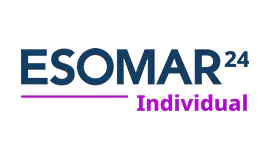Impact of Coronavirus (COVID-19) Pandemic on Industrial Automation and Machinery Industry
Over the past decade, manufacturing facilities have transformed digitally, bringing paradigm shift to the operational performance and throughput. Convergence of technologies such as Artificial Intelligence (AI) and Industrial Internet of Things (IIoT) accelerated the digital transformation in industrial processes. However, Coronavirus (COVID-19) pandemic has impacted almost all the industries globally including industrial automation and machinery. According to Coherent Market Insight’s estimate, in 2020, industrial automation and machinery industry will experience a 7% decline owing to impact of COVID-19 pandemic and is expected to decrease to a value of US$ 199.0 billion in 2020 from 214.0 billion in 2019.
To combat COVID-19 pandemic, most of the countries had implemented lockdown and are now easing it phase-wise and industry wise. This has significantly impacted manufacturing sector as the facilities across the globe were temporarily shut down, in countries such as China (lockdown imposed on 23rd January), Italy (lockdown started on 21st February), and India (lockdown started on 24th March). As industrial manufacturing companies are the largest consumer of conveyers, labelling machines, packaging machines, and automated storage systems, the demand for these products has declined due to cease in the activities of production units.
As manufacturing and distribution of goods have started at sub-optimal level across countries, consumer and capital goods manufacturing companies are gaining momentum. However, companies are operating with limited workforce which has created space for adoption of robotics and automation at manufacturing facilities to increase production levels with minimum risk and exposure of workers to coronavirus. Companies are expected to increase their capital expenditures on automation over the next year by 5.0% when the global economy recovers. This is anticipated to decrease the reliance on human labor (workforce) in the long run, and is expected to overcome workforce shortage in the short run.
COVID-19 has brought the medical devices industry at center stage with unmatched demand for personal protective equipment (PPE), ventilators, diagnostic tests, and other medical supplies. Manufacturers and automation companies are making efforts to reduce the shortage of critical medical supplies needed to combat COVID-19 pandemic. Companies such as ABB, Rockwell Automation, Emerson, and Siemens, ATS Automation Tooling Systems Inc. have changed the short term strategic roadmap emphasizing on healthcare technologies. Emerson is focusing on providing technological solutions used in the production of respirators, testing equipment, ventilators, and hospital beds during the spread of the virus. Robotic process automation company, Automation Anywhere, announced that it is collaborating with Northampton General Hospital in the UK to automate the monitoring and reporting of the centre’s Covid-19 oxygen supply (in May 2020).
The reports from Coherent Market Insights considers and evaluates the impact of COVID-19, and anticipated change on the future outlook of this industry, by taking into account the political, economic, social, and technological parameters.
Comparative Analysis - 1
Pre-Covid-19 Vs Post Covid-19 - Market Estimates, 2020 – 2021

Comparative Analysis - 2
Top Gainers Vs Top Losers
Marginal Growth
- Automation in electronics manufacturing industry
High Gainers
- Automation in healthcare and medical device manufacturing industry
Marginal Loss
- Automation in logistics, transportation, and material handling
High Losers
- Companies providing automation to industries such as automotive and aviation

Senior Consultant Level 1
ICT Research

Senior Consultant Level 1
ICT Research
- Technology solution providers need to diversify their product portfolio by providing automation technologies for industries such as healthcare, medical devices, and government
- Automation solution providers should focus on enhancing remote diagnostics capabilities of their automation systems
- Implementation of automation technologies for intelligent procurement and supply chain management would be key to agile business






